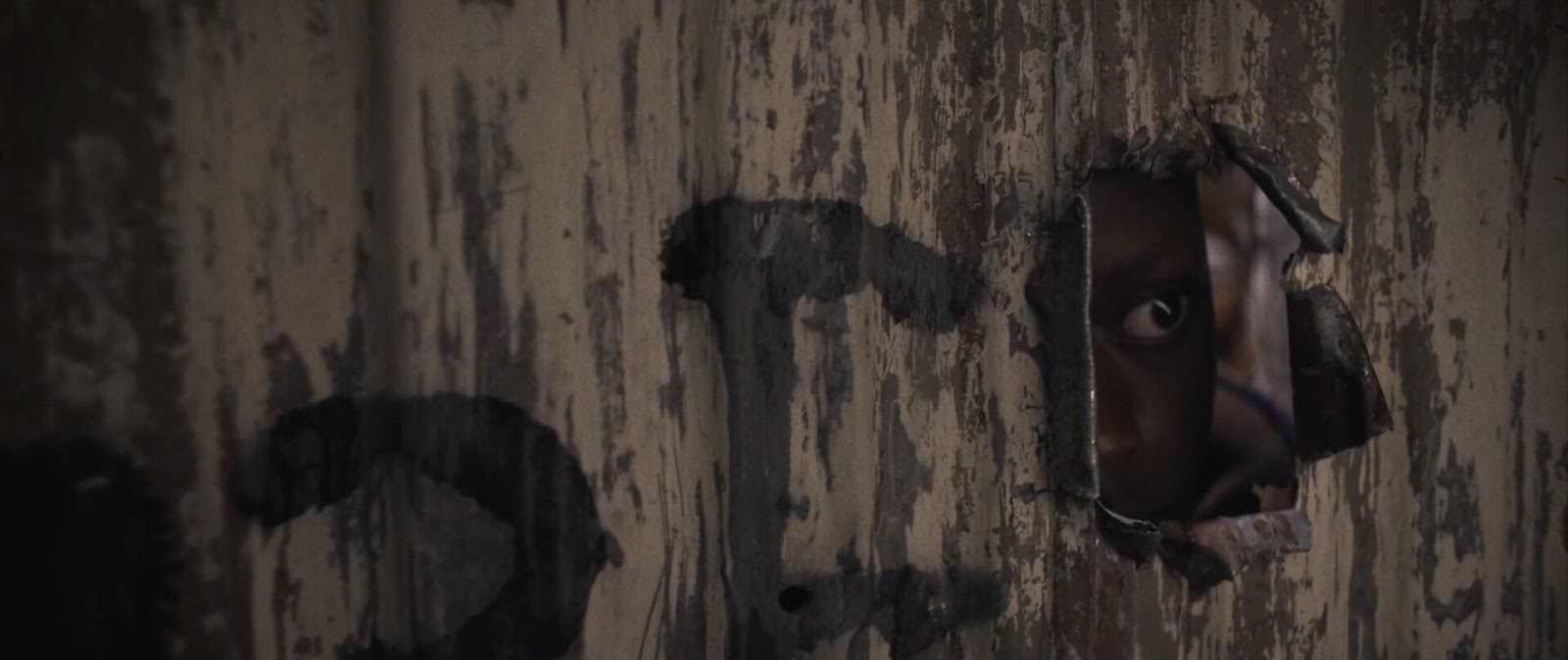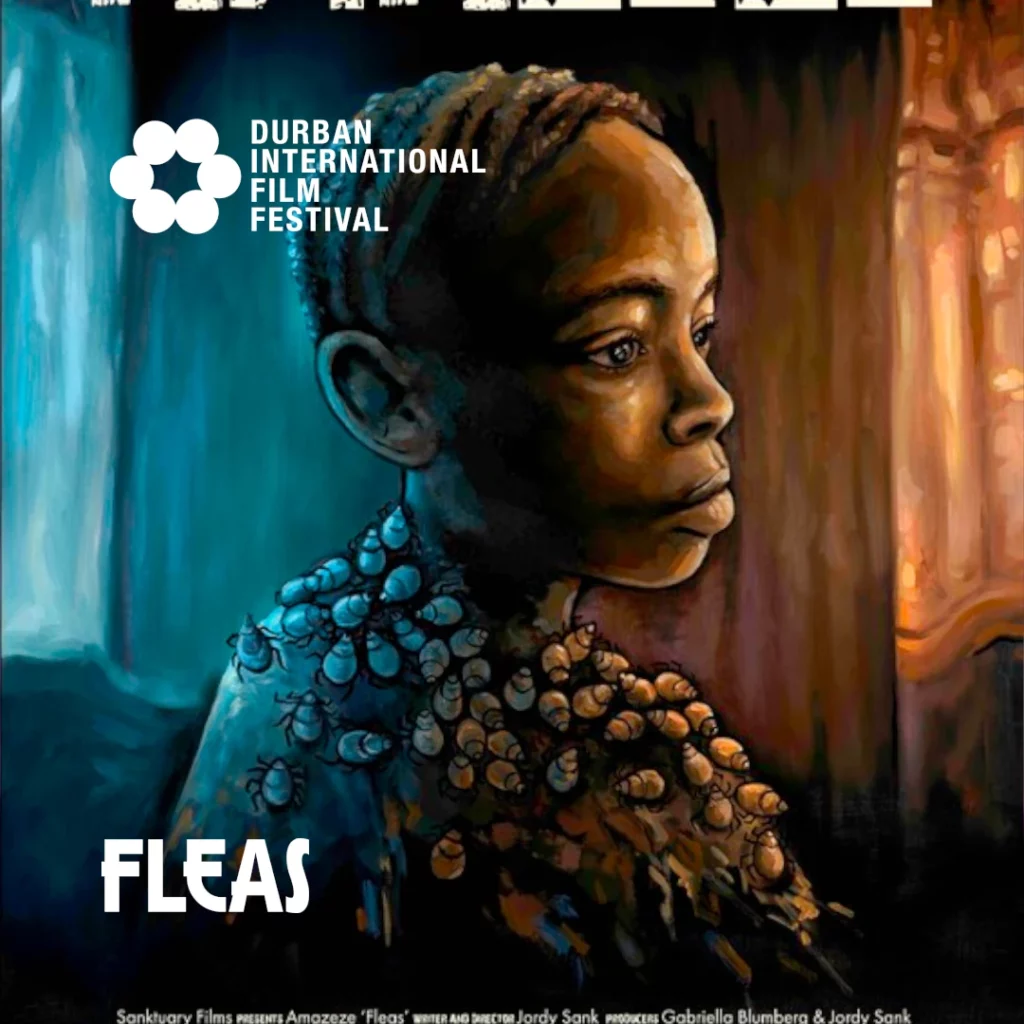By Tshi Malatji

Amazeze are fleas, considered nuisances to their community. Jordy Sank’s short film could not be more on-the-nose as its main character is a young boy, Tonderai, who tries to survive a single night surrounded by a mob going shack-to-shack to find migrants. On their shack, there is an image of a flea spray-painted on the wall as the chant of the crowd rings in the background. The title itself is described as an ‘anti-migrant slang that describes non-South Africans as fleas’
A mix of anxieties, fears and misconceptions are captured through a tense and quick-paced single night of rising action. We do not always see the threat, which makes it more frightening. The short also achieves a masterful level of visual production, depicting a genuine informal or township South African community in a manner which is visually believable, even if the over-the-top acting often falls short for the setting.
Tonderai who lives nervously with his brother, who speak Shona with each other. They are clearly coded as Zimbabwean, to the point that they argue about keeping any identifiers, such as a wooden memento of the bird from the Zimbabwean flag.
The film often slips into overly-structured filmmaking. The action rises expectedly when Tonderai must leave the hack since their mother does not come. All events after that occur predictably. Tonderai’s brother is sick. Still, Sank uses a shaky camera, close perspective and off-camera chanting to escalate tension.
Tonderai is innocent, kind and knowledgeable. But the South Africans in this area insist on him being a “flea” or someone who will grow up to be a nuisance. The mob circles around the boy, calling him a demon. Led by a Sizwe, they almost necklace the boy. Traumatic. The film struggles to say much more than this.
Fleas is an obvious and over-dramatised film, but it is also an allegory of rising xenophobia in South Africa and the dangers associated. It provides a lens to the perspective of a clearly innocent young boy whose only ‘crime’ is being Zimbabwean.
Sank wants to spotlight the irrationality of xenophobia, shown clearly by the clear disparity between Tonderai’s clear harmlessness and the way they are described by the community around them. Even the cries that Tonderai is just a child are deafened, showing how far and how dangerous xenophobia can become.
The film also resolves with an open ending. We don’t know if the characters survive the night. This mirrors the uncertainty of South Africa’s future as it tugs and pulls between Pan-Africanist and xenophobic tendencies. But, certainly, Fleas gives space to a missing perspective, and captures the violence from the eyes of a young child, whose daily life is a struggle to defend their identity and their life.
Catch the film at DIFF: https://ccadiff.ukzn.ac.za/diff46/fleas/
Screening Schedule:
20 Jul 14:00 Suncoast 6
27 Jul 14:15 Watercrest 1
2 Aug 14:30 The Labia
2 Aug 14:30 The Bioscope
This review emanates from the Talent Press programme, an initiative of Talents Durban in collaboration with the Durban FilmMart Institute and FIPRESCI. The opinions expressed in this article are those of the author (Tshi Malatji) and cannot be considered as constituting an official position of the organisers.

